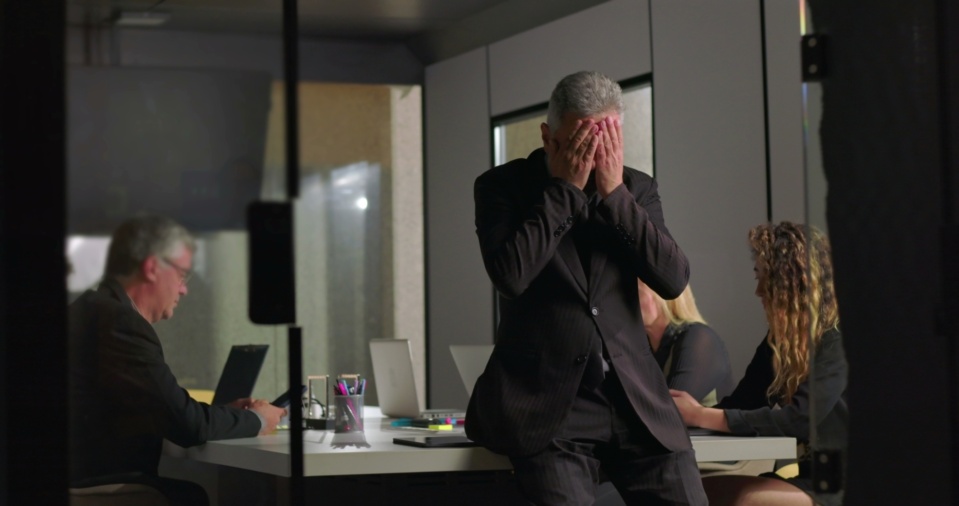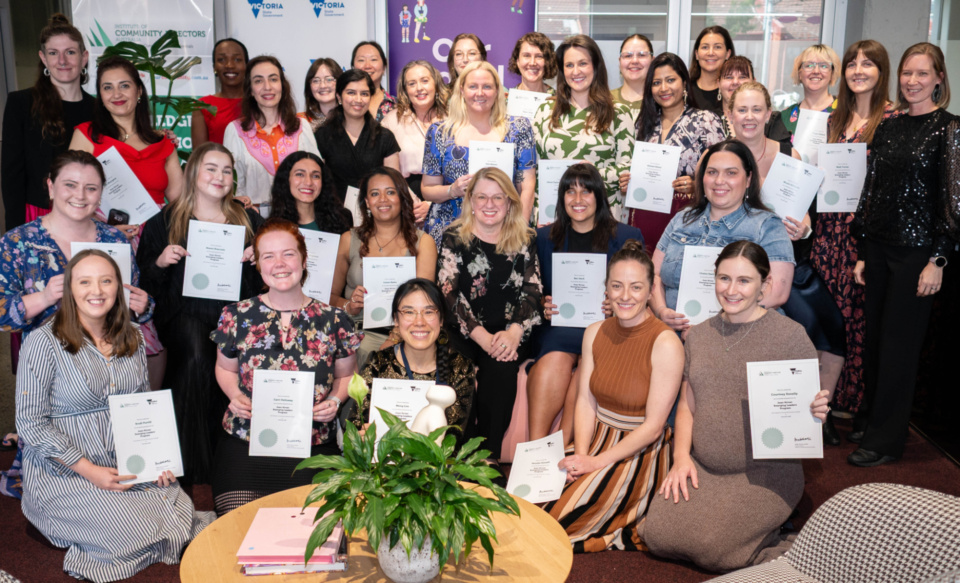
What not-for-profit leaders need to know in 2026
Posted on 12 Feb 2026
Our special NFP trends report distils the views of more than two dozen experts.
Posted on 13 Sep 2023
By By Matthew Schulz, journalist, Institute of Community Directors Australia

Having a disability doesn't mean you haven't got a responsibility to contribute, says Mary Henley-Collopy.
People with disabilities are an asset for not-for-profits wanting to better connect with and understand their communities, attract the best talent, and find creative solutions to their toughest problems according to dozens of studies and disability advocates.
Among those advocates are Mary Henley-Collopy, who at 62 feels akin to an “elder” of the disability community.
Born with a congenital physical disability, she has been witness to huge changes to the sector in her lifetime.
She says people with disability have seen the evolution of disability approaches from the “charitable” and “medical” models to more of a social inclusion model. She says that approach has rightly been enshrined in the UN Charter of Rights of People with a Disability and various pieces of legislation, including the Disability Discrimination Act.
A former social worker, Ms Henley-Collopy now acts as a National Disability Insurance Service (NDIS) advisor to the Australian Federation of Disability Organisations (AFDO).
As a graduate of ICDA’s Diploma of Governance and a director of a mid-sized community arts organisation in Melbourne’s inner-west, she has seen first-hand that diversity and inclusion lead to better-governed organisations.
Her personal and professional experience have reinforced her belief that disability-friendly organisations typically convert progressive thinking into mission success.
She says research and her own experience both show that people with disabilities are more likely to be great employees and effective board members, boasting fewer sick days, greater punctuality, and a more positive attitude to work, volunteering and leadership.
A joint Australian Human Rights Commission and IncludeAbility report citing 39 separate studies backs her up, and also shows that people with disability boost profitability, create competitive advantages, improve workplace loyalty, generate a better customer experience, and increase workplace motivation and engagement.
Ms Henley-Collopy strongly agreed with the report, and said people with disabilities often surprised employers with unexpected capabilities.
“For people with disability, often they just need that first opportunity,” Ms Henley-Collopy says.
“If you engage them properly, you’ll save money and you’ll get good talent.”
People with a disability were often adept at problem solving, logistics and time management, through necessarily having to plan and adapt for daily tasks such as travel, using workplace and public facilities, eating, and much more, Ms Henley-Collopy said.
She prides herself on bringing humour and “light-heartedness” to everyday problems, citing a recent “hilarious” episode in which airline staff battled to rebuild her electric wheelchair after a flight during a recent trip to Sydney.
“Everyone was laughing but we got the job done,” she said.
“People with disabilities face some tough challenges, but we can also see the funny side of life. What choice do we have?”
She said where not-for-profits were able they could further boost diversity and inclusion in their organisations via intersectionality, recruiting people with disabilities who also represented areas of additional diversity, such as those who had a CALD background or identified as LGBTIQ+, for example.
“Suddenly you’re covering even more diversity areas, and you’re much better placed to cater to all kinds of people.
“It goes back to recruitment and reminding everyone that diverse candidates are encouraged to apply, and having the right kinds of supports ready.”
She said AFDO and disability employment services offered guidance and help to make things easier, but organisations should prepare to support a more diverse workforce by auditing their policies, strategies, recruitment processes and facilities.
“Everything is possible if everyone has the same mindset, to come up with a resolution that works for everyone.”
She said the pandemic had prompted positive changes for accessibility, including the greater use of technology and reduced reliance on physical presence for meetings.
“One thing that covid did show us is that these things are possible. It used to be that everyone had to go into the office every day. But now we've realised, well, actually we don't.
“In the past, organisations have been reluctant to embrace people with disability, because they’ve suggested it costs them money or time, but now there are so many supports available, including training workers. I suggest that organisations really need to get up to speed with what help is available.”
“I’m really strong on the idea that if you’ve got the ability to work, to volunteer or to be on a board, then you’ve got a responsibility to contribute.”
Support services were now far more advanced and widespread than was the case in her early working years, she said, when she was forced to rely on council-run aged-care services.
Supports can include:
Funding was often available for modifications, Ms Henley-Collopy said, whether it was for new railings, changed doorways or other measures, and organisations should ensure that when they planned office changes or updates, the incorporation of disability access was a given.
Better access also boosted the value of property, she said.
“There is nothing that people with disabilities need that is an inconvenience to anyone else. If a sink is a bit lower, that’s not a problem for anyone else, but it can make a huge difference to someone with a disability.”
She said “reasonable adjustment” provisions in the Disability Discrimination Act meant that requirements were assessed based on an organisation’s income.
“It’s not reasonable to install a $600,000 elevator if you’re only turning over $100,000 a year,” she said.
Ms Henley-Collopy said there was still a long way to go for organisations that paid only lip service to the idea of inclusion for people with disabilities.
“I believe a good example of lip service are those old-fashioned supported workshops where workers get just $2 a day to work. When you’re paying award wages is when you’re starting to walk the talk.”
By the same token, she believed that people with disabilities also needed to “step up” to acknowledge their responsibilities as well as their rights.
“I’m really strong on the idea that if you’ve got the ability to work, to volunteer or to be on a board, then you’ve got a responsibility to contribute.”
Australian Federation of Disability Organisations (AFDO) disability access resources

Posted on 12 Feb 2026
Our special NFP trends report distils the views of more than two dozen experts.

Posted on 10 Feb 2026
As my family dropped our teenage son off at the airport in the first week of January to embark on a…

Posted on 11 Dec 2025
Community Directors trainer Jon Staley knows from first-hand experience the cost of ignoring…

Posted on 10 Dec 2025
As a qualified yoga instructor who learned the practice in her hometown of Mumbai, Ruhee Meghani…

Posted on 10 Dec 2025
Anyone working in an organisation knows it: meetings follow one after another at a frantic pace. On…

Posted on 10 Dec 2025
Stressed, overwhelmed, exhausted… if you’re on a not-for-profit board and these words sound…

Posted on 10 Dec 2025
The Institute of Community Directors Australia trains over 22,000 people each year, which gives us…

Posted on 03 Dec 2025
Many not-for-profit (NFP) board members in Australia are burnt out, overwhelmed and considering…

Posted on 26 Nov 2025
A roll call of Victoria’s brightest future leaders has graduated from a testing and inspiring…

Posted on 12 Nov 2025
At the Institute of Community Directors Australia, we believe that stronger communities make a…

Posted on 12 Nov 2025
Like many Community Directors members, Hazel Westbury is a community leader who isn’t easily…

Posted on 11 Nov 2025
I’ve seen what happens when fear of conflict wins out over taking a principled stand.